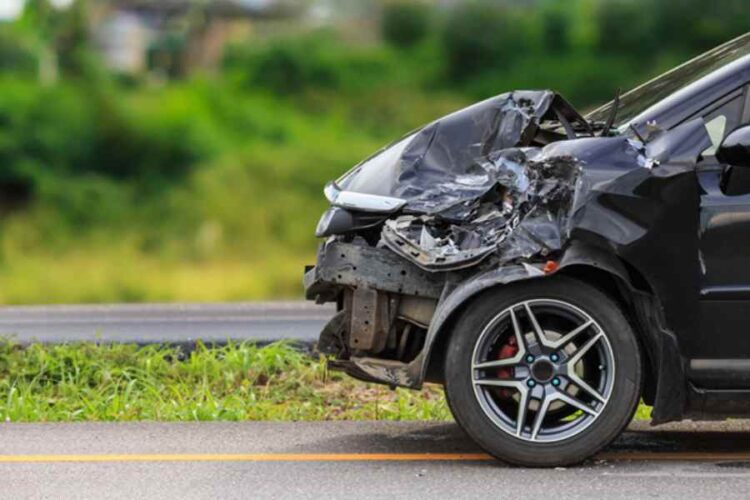Every day in California, there are car accidents of all sizes, from minor fender benders to serious collisions that cause serious injuries. Even though some drivers might think of skipping the reporting process, improperly recording an accident can have significant legal and financial repercussions. Comprehending state regulations guarantees adherence to the law and safeguards the rights of all parties.
Drivers must report accidents promptly significantly when injuries, fatalities, or property damage exceed the legal threshold. Those uncertain about their rights and responsibilities should contact a car accident lawyer in California to avoid potential legal pitfalls. Missing a reporting deadline or filing necessary paperwork can impact insurance claims and liability determinations.
Legal Obligations for Reporting a Car Accident
California law requires drivers to report auto accidents under some conditions. Noncompliance with these rules may result in penalties, fines, or license suspension. Several agencies are involved in the reporting process, each with a distinct function in managing post-accident protocols.
When Must a Car Accident Be Reported?
According to California Vehicle Code (CVC) § 20008, drivers must notify law enforcement if an accident results in:
- Injuries to any party (including minor injuries)
- Fatalities
- Property damage exceeding $1,000
Suppose a police officer does not respond to the scene. In that case, the involved parties must report the incident to the nearest California Highway Patrol (CHP) office or local police department within 24 hours.
Reporting to the California Department of Motor Vehicles (DMV)
In addition to notifying law enforcement, state law requires accident reporting to the DMV under CVC § 16000 when:
- The crash causes injuries or fatalities
- Property damage surpasses $1,000
Within ten days following the collision, the responsible party must submit a Report of Traffic Accident Occurring in California (SR-1) form to the DMV. If this report is not filed, your license may be suspended.
Consequences of Failing to Report an Accident
Neglecting to report an accident may lead to legal and financial repercussions. Insurance companies, law enforcement agencies, and the DMV rely on timely reports to assess liability and process claims.
Legal Penalties for Non-Compliance
- Fines and citations – Drivers who fail to report qualifying accidents may receive fines and traffic citations.
- License suspension—The DMV can suspend a driver’s license for non-reporting, affecting the driver’s ability to operate a vehicle legally.
- Criminal charges – In cases involving severe injuries or death, failing to report a crash could lead to criminal charges, including hit-and-run allegations.
Impact on Insurance Claims
Insurance providers require accident reports to process claims efficiently. Failing to report a crash can result in:
- Claim denial – Insurers may refuse to cover damages without proper documentation.
- Delayed compensation – The absence of an official report complicates the claims process.
- Increased liability – Disputed fault becomes more challenging to resolve without an accident report.
The Role of Police Reports in Determining Liability
A police report is crucial evidence of fault and liability after an accident. While not legally required for all crashes, obtaining one strengthens an insurance claim and protects against false accusations.
Key Details in a Police Report
- Date, time, and location of the accident
- Statements from involved parties and witnesses
- Officer’s assessment of fault
- Descriptions of visible damages and injuries
- Traffic violations or citations issued
Insurance adjusters and courts rely on police reports to assess fault and support injury claims. If discrepancies arise, seeking legal advice can help resolve disputes effectively.
Hit-and-Run Accidents and Reporting Requirements
In hit-and-run incidents, the driver leaves the scene without offering any help or information. It is unlawful to leave an accident scene without exchanging information or alerting law authorities, as stated in CVC § 20002.
Steps to Take After a Hit-and-Run
- Report the incident immediately – Contact law enforcement to document the accident and initiate an investigation.
- Gather evidence – Record witness statements, take photos of damages, and check for surveillance cameras.
- File an insurance claim – If the at-fault driver is unidentified, uninsured motorist coverage may provide compensation.
Failure to report a hit-and-run may result in financial losses and legal complications, making immediate action necessary.
Accidents Involving Uninsured or Underinsured Drivers
Collisions with uninsured or underinsured drivers complicate the claims process. Reporting the crash promptly helps victims explore alternative compensation options.
Alternative Avenues for Compensation
- Uninsured Motorist (UM) coverage – Provides compensation when the at-fault driver lacks insurance.
- Underinsured Motorist (UIM) coverage – Covers remaining damages when the other driver’s policy is insufficient.
- Personal injury lawsuits – Legal action may be necessary to recover damages from an at-fault party.
Consulting an attorney ensures victims understand their rights and take appropriate steps to recover losses.
What to Do After a Car Accident in California
Taking the proper steps after a crash ensures compliance with state laws and protects financial and legal interests. Drivers involved in an accident should:
- Check for injuries and call 911 if medical attention is needed.
- Move to a safe location to prevent further danger.
- Exchange information with the other driver, including name, contact details, license plate number, and insurance information.
- Document the scene by taking photos of vehicle damage, road conditions, and visible injuries.
- Obtain witness statements to support the claim.
- File an accident report with law enforcement and the DMV if required.
- Notify the insurance provider to initiate the claims process.
Ensuring Legal Compliance After an Accident
Understanding the importance of reporting car accidents under California law helps drivers avoid penalties, protect insurance claims, and secure legal rights. Compliance with state regulations prevents unnecessary complications and ensures victims receive the compensation they deserve. Seeking legal guidance in complex situations further strengthens an individual’s position and minimizes the risk of legal or financial setbacks.










